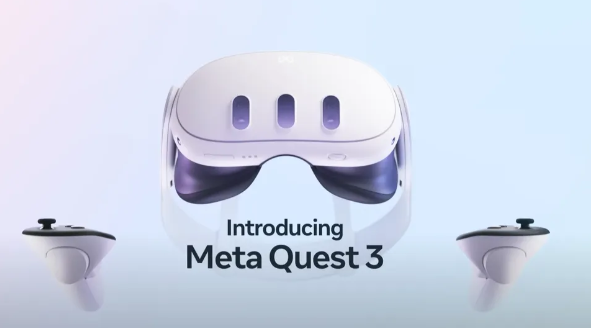Meta Platforms has begun licensing the operating system for its Quest headset to rival device makers, starting with Lenovo and Asus. The company also announced a limited-edition, gaming-focused Quest headset in collaboration with Microsoft's Xbox.
By sharing its rebranded Meta Horizon OS with partners, Meta aims to position itself as a key player in the VR and MR market, similar to how Google's Android operating system became a dominant force in the smartphone industry. The open-source approach will allow partner companies to build headsets tailored for specific activities, leveraging the capabilities of Horizon OS, such as gesture recognition, passthrough, scene understanding, and spatial anchors.
"You can imagine a lightweight headset that pairs with your computer on your desk to provide the best work experience at home or anywhere you go," said Meta CEO Mark Zuckerberg in a video announcing the news. "Or imagine one that's fully focused on watching immersive entertainment like movies and videos with the highest resolution OLED screens out there."
Meta's move comes as the company faces increasing pressure in the VR and MR space from competitors like Apple, which recently entered the market with its $3,499 Vision Pro headset, and Google, which is reportedly working on an Android platform for VR and MR devices. By licensing Horizon OS, Meta is firmly positioning itself as an open alternative to Apple's closed ecosystem.
"In the open ecosystem, basically you have much broader partnerships," Zuckerberg told reporters in an interview in the fall of 2022. "So Microsoft didn't build the chips; they didn't build the PCs; they didn't build the App Store. It was all this key stuff that was developed around the ecosystem. Similar to Android. And that's basically what we hope to build here - is the open ecosystem for the next generation of computing around virtual and augmented reality in the metaverse more broadly, which means that there are going to need to be all these partnerships."
As part of its push for openness, Meta is also working to make alternative app stores more discoverable on its platform. The company is making its experimental App Lab store more prominent and has invited Google to bring the Play Store to Horizon OS. Meta CTO Andrew Bosworth recently accused Google of pitching its VR/AR platform to partners with restrictive terms that could "fragment the ecosystem," a disagreement Zuckerberg alluded to in his video announcement, saying he would welcome Google Play apps on Meta Horizon OS devices, "if they're up for it."
Crucially for Meta, Horizon OS includes the Horizon social layer, a 3D, Roblox-meets-The Sims open-world platform that the company hopes to monetize with ads and commerce. By licensing Horizon OS to hardware partners, Meta will extend the reach of its social network, potentially attracting more users and developers to the platform.
While Meta has yet to share more details on the business terms of its Horizon OS license, the company has confirmed that it will require the use of Qualcomm chips and the inclusion of the Horizon social layer. The move has been a long time coming, with Zuckerberg expressing his desire to build an open ecosystem for the next generation of computing around virtual and augmented reality.






